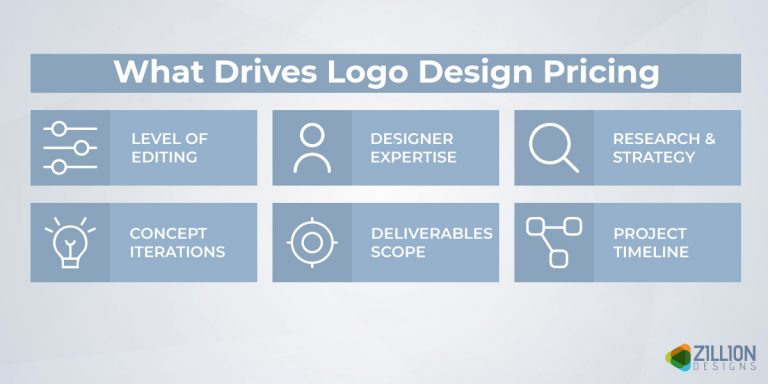Buying a house is likely one of the biggest decisions you’ll ever make in life. It’s an exhilarating milestone, no doubt. But it’s also a process that demands careful thought and planning. When you start looking at all the factors involved, it can quickly become quite daunting – especially if you’re a first-time homebuyer.
That’s where this guide comes in. We’ve put it together to walk you through the key considerations step-by-step. The aim is to help remove some of that overwhelming feeling and have you feeling confident and well-informed to find your dream home. With some strategic preparation, you’ll be ready to make this huge life decision with ease.
1. Location, Location, Location
You’ve heard that famous real estate motto before, haven’t you? It’s repeated so much because where a house is situated truly is the most crucial factor. You can make renovations and changes to the actual home over time, but you’re stuck with the location permanently.
Beyond just the street address, you’ll want to get a feel for the overall community and neighborhood vibe. Is it quiet and residential or louder and busier? How do the neighbors seem? You’ll be living among them, after all. Think about proximity to your workplace, cutting down that dreaded commute time as much as possible.
If you have kids already or plans for them down the road, scoping out the school district quality is wise. And convenience is key – how close are amenities like grocery stores, parks, restaurants, and entertainment? Drive around at different times to check traffic patterns, too. You don’t want surprising gridlock issues. Also, be aware of any planned development that could bring new construction, retail, or roads into the area soon.
2. Budget and Financing
Knowing what you can truly afford is priority number one when buying a home. Get specific budget numbers calculated for the mortgage payment itself, as well as the additional costs like property taxes, homeowners insurance, utilities, regular maintenance, repairs, and upgrades such as a home security system. Unexpected expenses always pop up with homeownership!
Not just buying a house requires financing – you’ll likely need some form of loan or mortgage unless you can pay all cash (lucky you!). Working with a lender to get pre-approved is smart. This tells you the loan amount you qualify for based on your finances, which sets your true price range. Plus, sellers take pre-approved buyers more seriously. Don’t forget there are closing costs, too, that can add up quickly.
3. Size and Layout
Think about the size and layout not just for your current situation but your future needs, too. A one-bedroom condo might be perfect and economical for a young couple now, but what if kids arrive in a few years? Or, if you love to entertain, a place with an open kitchen flowing into the living room makes hosting events a breeze.
If you work remotely, does the home have a spare room or flex space for a dedicated office? Or if the separation of work and home is important, maybe that’s not ideal. Consider storage needs as well – if you have lots of hobbies, sports equipment, etc, you may want ample basement, attic, or garage space.
4. Age and Condition
Older, historic homes tend to have amazing vintage character and craftsmanship…but often require more updates and repairs. Newer construction means less maintenance initially but comes with a higher price tag. There are pros and cons to weigh for each.
When touring houses, keep a keen eye on the condition of the big components – the roof, electrical, plumbing, HVAC system, appliances, etc. Replacing or repairing those can set you back tens of thousands easily. That’s why a professional home inspection is highly recommended before making an offer. Those expert set of eyes can identify any glaring issues you may miss.
5. Resale Value
While you may have fallen head over heels for a particular home, it’s wise to keep one eye on the future, too. Even if you don’t anticipate moving anytime soon, life can throw curveballs. Job changes, growing families, aging parents – any number of situations could make selling and moving a necessity down the road.
That’s why considering a home’s resale value and making sure your investment holds its worth over time is crucial. Do some research on that neighborhood’s real estate market trends. Are home values rising or falling? What are comparable homes selling for? The quality of the school district weighs heavily, too, even for buyers without kids. And be aware of any major upcoming developments like new roads, shopping areas, etc., that could impact resale positively or negatively.
When house hunting, keep an eye out for features and finishes that tend to be in high demand. Renovated kitchens and bathrooms are always prized. Energy efficiency is increasingly important to today’s buyers as well. And ample storage space never goes out of style! Thinking ahead about a future sale can help prioritize priorities now.
6. Outdoor Space and Amenities
Don’t make the mistake of only evaluating the house itself. The outdoor areas and any community amenities factor into the overall package and your future living experience, too.
If you’re the outdoorsy type who loves gardening, grilling, and backyard hangouts, then make sure you have the proper space for it. A decent-sized yard, patio, or deck can make or break your enjoyment. Pet owners and families with kids will certainly want a fenced yard for safety and containment.
On a broader scale, scope out what recreational amenities that neighborhood provides. Parks, playgrounds, trails, sports courts – these little extras let you take advantage of the full community lifestyle. They provide convenient venues for exercise, entertaining, and simply having some fun outdoors. Proximity to these perks translates to better daily living.
7. Potential for Renovations
Maybe your dream home isn’t 100% perfect from the start. But don’t let that deter you if the bones are good. A savvy buyer can look past cosmetic issues and visualize the potential for renovations and expansions down the line.
Inspect to ensure there’s adequate unfinished space – attics, basements, garages – that could be updated to add more livable square footage when needed. Is there room on the lot to build up or out with an addition? These projects require an upfront investment, of course. So make sure to calculate those potential future costs into your renovation budget ahead of time.
It’s also crucial to check city zoning ordinances and any neighborhood homeowner association rules. They can restrict what kind of construction is permissible, setbacks from property lines, and more. A simple basement renovation won’t fly if it violates codes!
Final Thoughts
So, you’ve dreamt of that perfect place to call your own. This guide aimed to shed some light on the maze of factors to consider before you take the plunge. Remember, buying a house is an exciting adventure, but with some planning and this newfound knowledge, you can navigate the process with confidence and find a home that truly fits your needs and dreams. Happy house hunting!
Explore Further:
18 Master Bedroom Design Ideas to Create a Calming Bedroom
Upgrading your Garage Door to Increase Home Value
4 Functional Backyard Design Ideas for 2024
The post 7 Factors To Consider When Buying A House appeared first on Architectures Ideas.






